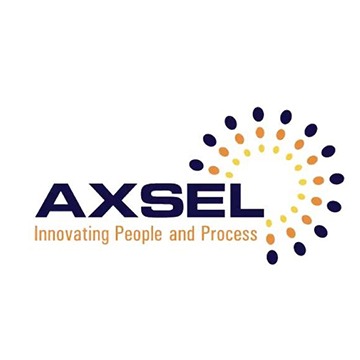
Axsel Management International Sdn Bhd
Courses
11
Courses Enrolled
0


By the end of the course, participants will have:
· Developed a customized DEI action plan for their organization
· Created a toolkit of DEI best practices and resources
· Formulated strategies to address unconscious bias and microaggressions
· Designed a framework for measuring and evaluating DEI initiatives
25 November 2024 09:00 AM Asia/Singapore

Output:
By the end of the course, participants will have:
· Developed a data-driven HR strategy aligned with business objectives
· Created a dashboard of key HR metrics for their organization
· Designed an HR analytics project plan addressing a specific business challenge
· Formulated strategies for promoting a data-driven culture within HR and the broader organization
27 November 2024 09:00 AM Asia/Singapore

After the program, your delegates will have the following benefits:
· Apply Strategic Thinking to leverage the Business Model Canvas to test their business models
· Apply the Innovation Disrupts to capture the targeted customer segment
· Apply a Balanced Scorecard as a tool for aligning strategic priorities and cascading SMART goals across teams
· Abie to raise vital questions and problem statements to maximize solution impact
· Formulate practical action plans to improve and sustain team performance
28 November 2024 09:00 AM Asia/Singapore

By the end of the course, participants will have:
· Developed a customized employee experience roadmap for their organization
· Created an action plan to improve retention rates
· Designed strategies for enhancing key touchpoints in the employee lifecycle
· Formulated a framework for measuring and evaluating employee experience initiatives
18 December 2024 09:00 AM Asia/Singapore

By the end of the course, participants will have:
· Developed a mental health and well-being action plan for their organization
· Created a toolkit for recognizing and addressing mental health issues in the workplace
· Designed strategies for promoting work-life balance and stress management
· Formulated a framework for implementing and evaluating mental health initiatives
16 December 2024 09:00 AM Asia/Singapore

By the end of the program, participants will be able to create detailed competency profiles and use these profiles to identify and address skill gaps within their organizations. Its facilitates the following takeaways :- Understand the fundamentals of competency profiling. Learn methods to develop and implement competency models. Understand the process of linking competency profiles to training needs analysis (TNA). Apply practical examples and case studies to reinforce learning.
25 November 2024 09:00 AM Asia/Singapore

By the end of the course, participants will have:
· Developed a personal action plan to address their own unconscious biases
· Created strategies for recognizing and mitigating bias in key organizational processes
· Designed an unconscious bias training module for their teams
· Formulated a framework for ongoing bias awareness and mitigation in their organization
27 November 2024 09:00 AM Asia/Singapore

By the end of the course, participants will have:
· Developed a personal action plan to address their own unconscious biases
· Created strategies for recognizing and mitigating bias in key organizational processes
· Designed an unconscious bias training module for their teams
· Formulated a framework for ongoing bias awareness and mitigation in their organization
12 December 2024 09:00 AM Asia/Singapore

· Enhanced self-awareness among employees about their strengths and areas for improvement.
· Clear, actionable career goals and plans for each participant.
· Improved skills in areas such as communication, leadership, and problem-solving.
· A sense of empowerment and responsibility for personal and professional growth.
28 November 2024 09:00 AM Asia/Singapore

Participants will learn modern recruitment strategies, bias-free selection techniques, and practical tools for making informed hiring decisions.
09 December 2024 09:00 AM Asia/Singapore

The course combines theoretical knowledge with practical applications, case studies, and interactive discussions to ensure participants gain actionable insights they can implement in their organizatio
09 December 2024 09:00 AM Asia/Singapore
Showing 1 to 11 of 11 entries
Showing to of entries